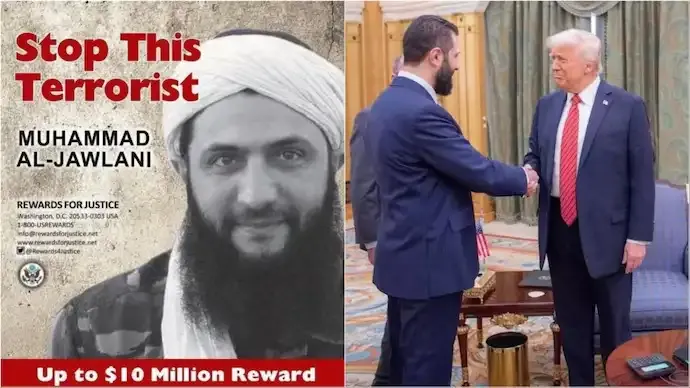Shopping cart
Your cart empty!
Terms of use dolor sit amet consectetur, adipisicing elit. Recusandae provident ullam aperiam quo ad non corrupti sit vel quam repellat ipsa quod sed, repellendus adipisci, ducimus ea modi odio assumenda.
Lorem ipsum dolor sit amet consectetur adipisicing elit. Sequi, cum esse possimus officiis amet ea voluptatibus libero! Dolorum assumenda esse, deserunt ipsum ad iusto! Praesentium error nobis tenetur at, quis nostrum facere excepturi architecto totam.
Lorem ipsum dolor sit amet consectetur adipisicing elit. Inventore, soluta alias eaque modi ipsum sint iusto fugiat vero velit rerum.
Sequi, cum esse possimus officiis amet ea voluptatibus libero! Dolorum assumenda esse, deserunt ipsum ad iusto! Praesentium error nobis tenetur at, quis nostrum facere excepturi architecto totam.
Lorem ipsum dolor sit amet consectetur adipisicing elit. Inventore, soluta alias eaque modi ipsum sint iusto fugiat vero velit rerum.
Dolor sit amet consectetur adipisicing elit. Sequi, cum esse possimus officiis amet ea voluptatibus libero! Dolorum assumenda esse, deserunt ipsum ad iusto! Praesentium error nobis tenetur at, quis nostrum facere excepturi architecto totam.
Lorem ipsum dolor sit amet consectetur adipisicing elit. Inventore, soluta alias eaque modi ipsum sint iusto fugiat vero velit rerum.
Sit amet consectetur adipisicing elit. Sequi, cum esse possimus officiis amet ea voluptatibus libero! Dolorum assumenda esse, deserunt ipsum ad iusto! Praesentium error nobis tenetur at, quis nostrum facere excepturi architecto totam.
Lorem ipsum dolor sit amet consectetur adipisicing elit. Inventore, soluta alias eaque modi ipsum sint iusto fugiat vero velit rerum.
Do you agree to our terms? Sign up

In one of the most dramatic diplomatic reversals in recent memory, U.S. President Donald Trump is set to host Syrian President Ahmed al-Sharaa at the White House on November 10, marking the first visit by a Syrian leader to Washington in 25 years. But this isn’t just a high-stakes meeting — it’s a gamble that blurs the line between strategy and morality.
The controversy isn’t over the meeting itself — it’s over the man Trump has chosen to welcome.
Before assuming Syria’s presidency, Ahmed al-Sharaa was known by a far darker name: Abu Mohammed al-Golani, an ex–al-Qaeda commander once hunted by the U.S. with a $10 million bounty. A man who fought American troops in Iraq, led jihadist offensives in Syria’s civil war, and spent years in U.S. custody is now being received as a head of state in Washington.
The irony is glaring — and intentional.
Officially, the visit is meant to formalize Syria’s entry into the U.S.-led coalition against ISIS. Washington is presenting it as a breakthrough — a once-hostile regime turning partner in counterterrorism.
But few analysts are buying the simplicity of that narrative. The White House meeting is less about ISIS and more about power politics, particularly in reshaping alliances across West Asia after years of instability.
For Trump, the move checks several strategic boxes:
A Pre-Election Foreign Policy Win: Hosting al-Sharaa gives Trump a headline-grabbing “peace moment,” allowing him to project himself as a dealmaker who restored diplomatic ties with a former enemy.
Countering Russian Influence: Al-Sharaa’s recent meeting with Vladimir Putin in Moscow, where he pledged to “redefine” Syria-Russia ties, triggered concern in Washington. Trump’s invitation signals an attempt to pull Damascus back from Moscow’s orbit.
The Israel Factor: With a fragile ceasefire between Israel and Hamas, Washington is seeking a broader West Asia stabilization framework — one that includes even controversial regional actors.
As one senior U.S. official reportedly put it, “You can’t rebuild the Middle East without dealing with the ghosts of its wars.”
For decades, U.S. foreign policy has been defined by clear moral binaries: democracy versus dictatorship, ally versus terrorist. But Trump’s outreach to al-Sharaa is realpolitik in its purest form — transactional, opportunistic, and unapologetic.
In Saudi Arabia earlier this year, Trump quietly met al-Sharaa for the first time — the first U.S.–Syria contact since 2000, when Hafez al-Assad met Bill Clinton. That encounter laid the groundwork for this week’s unprecedented visit.
Behind the handshake, however, lies a far deeper gamble: whether rehabilitating a former jihadist leader can serve American interests without destroying Washington’s moral credibility.
Critics argue that it cannot.
“It’s the ultimate contradiction,” said one West Asia analyst. “You can’t preach a war on terror and then roll out the red carpet for a man who once led al-Qaeda’s Syria wing.”
The optics are undeniably awkward. The announcement comes just days after Israeli airstrikes in Gaza killed over 100 civilians, straining the ceasefire Trump had celebrated as his “greatest diplomatic achievement.”
In this volatile backdrop, hosting Syria’s president — a figure long accused of violence, extremism, and repression — feels less like a peace gesture and more like political damage control.
Human rights advocates warn that such normalization sets a dangerous precedent. “If the U.S. can rehabilitate an ex-jihadist for strategic convenience,” one NGO director asked, “what message does that send to victims of terrorism?”
For Trump, however, this visit is about influence, not friendship. Washington’s long game is to redefine engagement in a multipolar Middle East, where Russia, China, Iran, and regional powers like Saudi Arabia compete for dominance.
By welcoming al-Sharaa, Trump aims to reclaim diplomatic ground lost over the past decade — to reinsert the U.S. into the heart of Syria’s post-war reconstruction and regional negotiation process.
It’s a high-stakes play. If successful, it could give Washington leverage over Damascus, weaken Moscow’s hold, and reshape the future of the region. If it fails, it risks legitimizing extremism under the banner of statecraft.
Trump’s invitation to Ahmed al-Sharaa captures the essence of modern American diplomacy — where pragmatism increasingly overshadows principle.
In the aftermath of two decades of intervention fatigue, the U.S. is shifting from moral crusades to strategic containment — even if it means engaging men once branded as enemies.
But this pivot raises a haunting question for the global order:
When nations start forgiving the unforgivable for the sake of influence, what remains of the moral compass that once defined international diplomacy?
31
Published: Nov 05, 2025